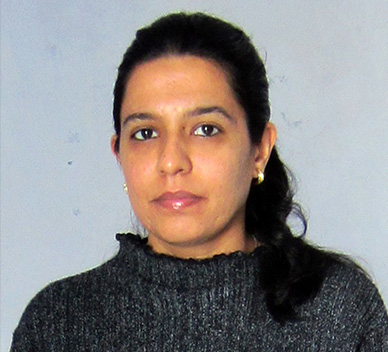Krupa Makhija
India

India
With both a BFA and MFA in Painting from Faculty of Fine Arts, M S University,Baroda (2005 & 2007) Krupa Makhija becomes the forth recipient of the Glenfiddich /Bestcollegart Emerging Indian Artist of the Year Award. Although she trained as a painter her practice also includes printmaking and sometimes installations. She explains her works as being ‘Symbolic’ representations of her own personal experiences about culture, language and identity. A practice she describes as‘Cultural Amnesia’. Krupa’s family migrated from Pakistan during partition of 1947. Her community and language is among the constitutional minorities in India. Loss of language is the great reason of cultural destruction. Being the first generation of her family to be born in post-partition India she grew up with the lots of stories of pre partition era. All these experiences are somehow transformed into her works through ‘symbolic representations’.
'I am concerned about, how cultural destruction travels through generation to generation. For an migrant artist, creative expressions, exist-reflective on cultural mooring. Often we are not sure if we are an outsider or an insider. These conflicts and complexities are the creative fundamentals of my work.
During my residency I wish to undertake a project by using local natural materials and found objects resonating with cultural and personal associations. I want to involve local community in this project. Recently I have started work which is based on ‘architectural trash. I consider architecture as one of the most important disciplines depicting ‘cultural identity’. Collecting some old pieces of wall, floorings etc. from the remains of abandoned and disused buildings, I then apply a photo transfer process to these found objects. The images I use are sourced from local depicting the architecture of this place which are now becoming lost due to several reasons. These are like memories of people or our culture in those pieces. These pieces will be large in numbers and randomly installed as heap of trash.'